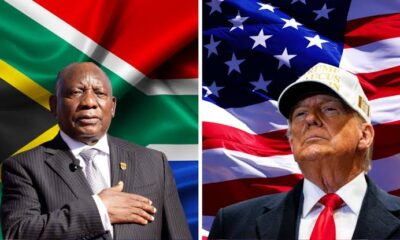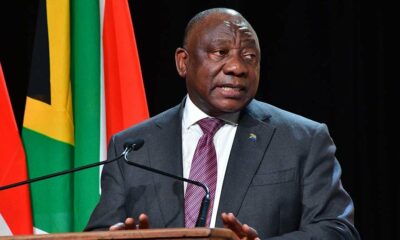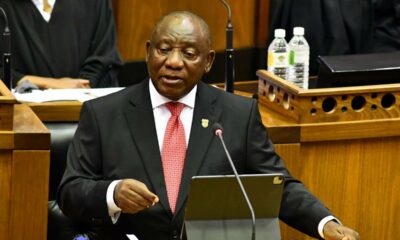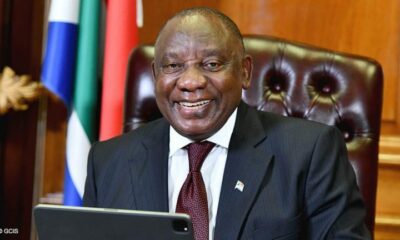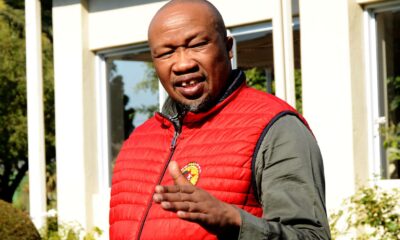News
Ramaphosa Pushes Back as Trump Slaps 30% Tariff on South African Exports
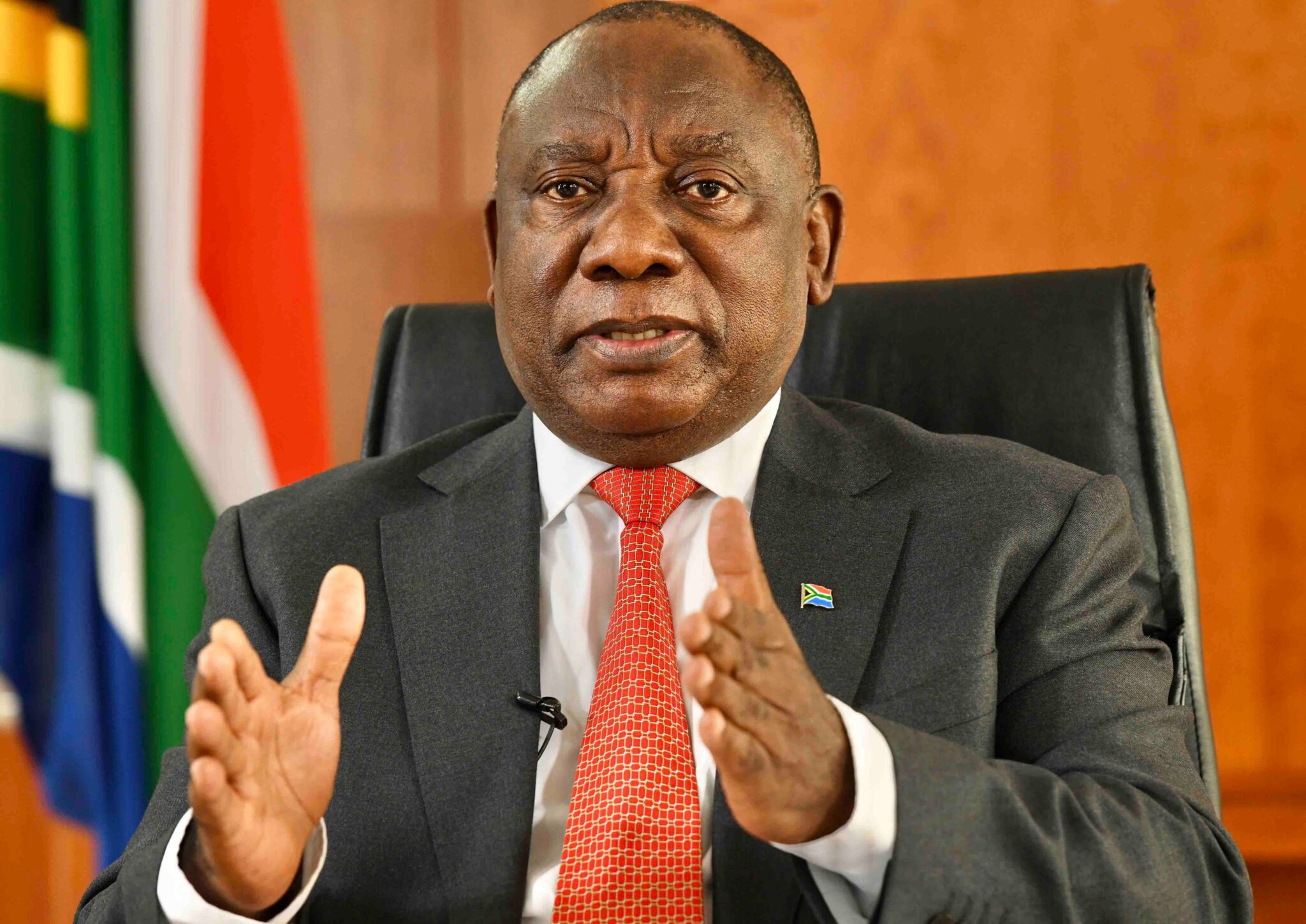
The president says US trade data is flawed and insists diplomacy, not punishment, is the path forward
President Cyril Ramaphosa has responded sharply but diplomatically to United States President Donald Trump’s announcement of a 30% tariff on all South African exports, set to take effect on 1 August 2025. The move has sparked fears of a trade war, shocked South African exporters, and raised fresh questions about how Pretoria will navigate its strained but critical relationship with Washington.
Trump’s announcement, delivered via Truth Social and in a formal letter to Ramaphosa, cites long-standing trade imbalances as the reason behind the steep tariff. He argued that the trade deficit between the two countries is unsustainable and that South Africa has imposed years of “tariff and non-tariff barriers” on US goods.
Ramaphosa, however, is not buying it.
Data dispute: ‘A misrepresentation of trade facts’
Ramaphosa said Trump’s 30% figure is based on a “contested interpretation” of trade data. The South African presidency points out that the US is calculating the tariff using a blunt trade deficit model — not based on actual tariff policies or World Trade Organization (WTO) norms.
“South Africa maintains that the 30% reciprocal tariff is not an accurate representation of available trade data,” Ramaphosa said in a late-night statement.
In fact, South Africa says its average tariff on imports is just 7.6%, and that 56% of imports enter the country duty-free. Furthermore, 77% of US goods already enjoy a 0% duty under existing agreements.
Trump, by contrast, claims that because the US imports more South African goods ($14.8 billion) than it exports to the country ($5.8 billion), the deficit amounts to 60%, justifying the 30% levy as a “reciprocal discount”.
Trade experts and economists have labelled Trump’s approach “economically flawed and politically motivated.”
Ramaphosa: Keep talking, not punishing
While the rhetoric could easily spiral into retaliatory measures, Ramaphosa has signalled a commitment to diplomacy.
“We welcome the commitment by the US government that the 30% tariff is subject to modification after our negotiations,” he said.
South African officials are continuing discussions with US trade representatives and held direct talks during the US-Africa Summit in Luanda on 23 June 2025. According to Ramaphosa, Washington is developing a “template” for trade engagement with sub-Saharan Africa, which South Africa is ready to engage with.
Pretoria is pushing the Framework Deal it submitted to the US in May as a basis for resolving the dispute, one that covers everything from reciprocal access to fair trade practices and the validity of the perceived surplus.
What’s at stake: More than just exports
The 30% tariff doesn’t just affect big exporters, it’s a potential body blow to South African jobs, AGOA-linked industries, and local agriculture, which benefits greatly from US market access.
With AGOA (African Growth and Opportunity Act) up for review in September 2025, tensions like these could further threaten South Africa’s inclusion in the duty-free agreement.
Already, analysts warn that Trump’s broader trade crackdown, which includes tariffs on Japan, Malaysia, and South Korea, marks a return to unilateralism. South Africa, as a BRICS member, is particularly vulnerable, especially after Trump warned of extra levies on countries aligned with “anti-American” policies.
Diversify or die trying
Ramaphosa has urged South African firms to diversify global supply chains and expand their international trade relationships to reduce reliance on the US.
“We urge South African companies to accelerate their diversification efforts in order to promote better resilience,” he said.
That means looking east and north, to Asia, the Middle East, and intra-African trade partners for new markets and less volatile trade regimes.
The bigger picture: Is this about economics or politics?
With the US election cycle in full swing and Trump keen to shore up his “America First” base, many see the tariff as a political chess move rather than an economic necessity.
Back home, Ramaphosa must now walk a tightrope, defending the country’s economic interests without risking total fallout from its largest non-African trade partner.
The next few weeks will be critical. If negotiations stall, and the tariffs hit on 1 August as planned, South African exporters could see margins squeezed and markets closed off, right as the economy struggles to gain momentum.
For now, the president’s message is clear: South Africa is open to negotiation, but won’t accept unfair treatment without a fight.
{Source: BusinessTech}
Follow Joburg ETC on Facebook, Twitter , TikTok and Instagram
For more News in Johannesburg, visit joburgetc.com

